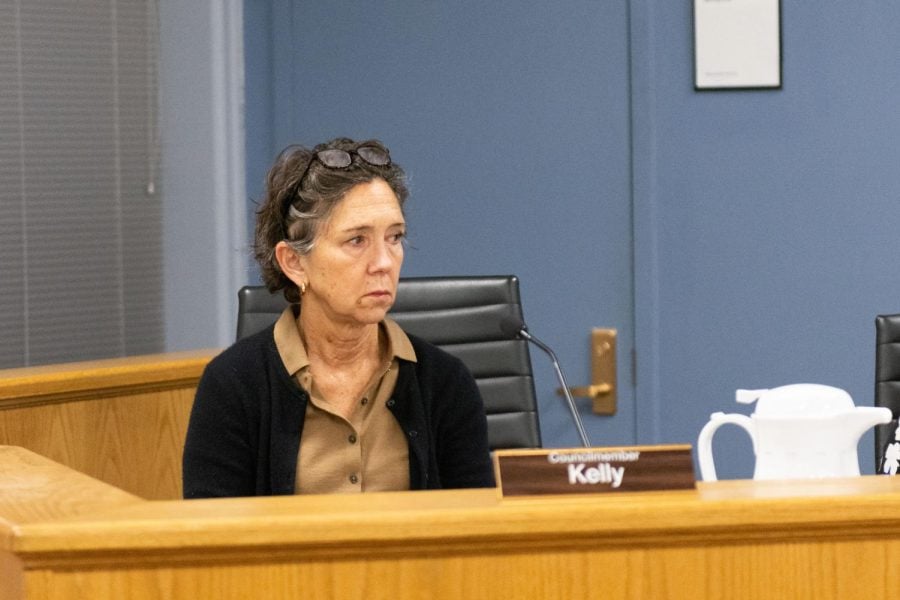City Council introduces mandate for shared housing license
Daily file photo by Mika Ellison
During Monday’s meeting, Ald. Clare Kelly (1st) said she thinks the council is moving too fast with this ordinance. She also raised her concerns about the ordinance’s potential impact on fair housing.
February 14, 2023
City Council voted 7-1 to introduce an amendment Monday to the city code that will require shared housing in Evanston to be licensed.
The council initially planned to vote on issuing a special use permit to Connections for the Homeless for its Margarita Inn shelter. However, a temporary restraining order issued by Cook County Circuit Court Judge Neil Cohen barred discussion of the permit.
Sue Loellbach, manager of advocacy at Connections, said the organization is disappointed to have another delay to the permit. She encouraged residents with questions and concerns about Margarita Inn to contact her or the Connections’ leadership team.
The shared housing ordinance, if passed, will mandate all forms of shared housing establishments — including hotels, boarding houses, shelters and dorms — to obtain a shared housing provider license, submit an operating agreement and be inspected annually.
Ald. Clare Kelly (1st) said the council is moving too fast with this ordinance. Specifically, she raised concerns about the ordinance’s potentially unequal impact on different properties of the same type.
“Now we’re putting everything under the same license,” she said. “Then, we’re going to have separate operating agreements for every single — for example — transitional shelter, and those could vary and be unequal.”
Kelly also asked if there are other municipalities that currently regulate shared housing in the same way as the proposed ordinance.
Interim Community Development Director Sarah Flax said the city staff did not find any community or municipality with regulations exactly like the proposed ordinance. But, she said the ordinance will allow for room to adapt in response to changing housing trends, like the increased popularity of cohousing.
“Physical buildings are being used in different ways at different times to house people differently,” Flax said.
Corporation Counsel Nicholas Cummings said the city already requires a license for lodging establishments. The proposed ordinance will strengthen the city code, he said, and give the city a better enforcement mechanism to protect residents of these establishments.
Ald. Devon Reid (8th), unlike Kelly, said he doesn’t think the process for passing this ordinance is rushed or biased by Connections.
“That’s almost something to be proud of if this council is extremely influenced by homeless shelters and ensuring that they’re here in our community,” Reid said. “I don’t think that’s the case. I think this is (a) smart policy that should be applied elsewhere.”
Reid asked about the timeline for operational agreement submissions. Planning Manager Elizabeth Williams said the city will require an operating agreement for any new license application. Current license holders will have to submit an operating agreement when they renew their licenses next year.
Ald. Jonathan Nieuwsma (4th) agreed with Reid and said City Council hasn’t rushed the ordinance amendment process. He said the discussion around facility licenses began almost a year ago, and he supports the solution the staff came up with.
“I think this is really an elegant and creative solution to what is really kind of a thorny problem, (which is) how do we regulate a really diverse and complex array of potential housing structures as simply as possible,” Nieuwsma said.
All councilmembers, except Kelly, voted in favor of introducing the ordinance. It is scheduled to return to the council Feb. 27 for a vote of passage.
Email: [email protected]
Twitter: @caseeey_he
Related Stories:
— City Council discusses miscommunication in Harley Clarke, Jens Jensen leasing process
— City Council delays decision to ban cashless businesses
— City Council discusses where to allocate about $5.7 million remaining ARPA funds












